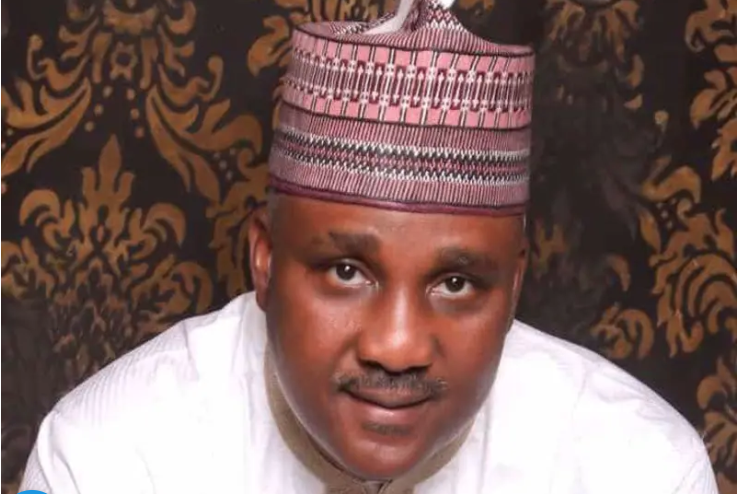The Speaker of the House of Representatives, Mr. Tajudeen Abbas says the country has recorded unprecedented progress, as Nigeria marks 26 years of uninterrupted democratic governance,
He made this known during a joint sitting of the National Assembly to commemorate the nation’s 26 years of democratic rule.
Mr. Abbas noted that over the past two decades, the National Assembly has remained a steadfast guardian of democratic institutions.
“Within the past two years, the House has reviewed 2,263 bills. Of these, 65.3% have passed Second Reading, while 186 have been successfully passed.
“A total of 51 bills have received presidential assent, marking an unprecedented milestone for any President in his first two years. Congratulations on that feat, Mr. President,” he said.
The Speaker outlined the House’s legislative achievements, particularly in the areas of security, the economy, infrastructure, education, and social welfare.
He said said; “In the 2025 budget, ₦6.11 trillion, representing 11.1%—was allocated to the security sector. The signing of the Defence Industries Corporation of Nigeria Act, 2023, has positioned the country on the path to self-reliance in arms production and logistics.”
He said that the Control of Small Arms and Light Weapons Act, 2024, has significantly tightened regulatory loopholes, aiming to reduce the illicit circulation of small arms and light weapons.
On the economy, Mr. Abbas said the House supported the removal of fuel subsidies and the unification of foreign exchange windows, as well as championed tax reform legislation.
“These actions, coupled with the President’s bold initiatives, are boosting investor confidence, increasing federal revenue, and augmenting state allocations. In April 2025, Nigeria met its OPEC production quota of 1.486 million barrels per day for the first time since 2021,” he explained.
The Speaker noted that the legislature has supported the President’s infrastructure revolution, with funding for infrastructure reaching 8.16% in 2025, sustaining 440 ongoing road projects—including the Abuja–Kaduna–Zaria–Kano corridor and the Lagos–Calabar Coastal Highway.
“In the social sector, allocation to education rose from 5.7% in 2021 to at least 8.2% in 2023/2024. The Student Loan Act has empowered over 500,000 students,” he said.
The Speaker also mentioned the establishment of 10 new universities, polytechnics, and specialised institutions—“the highest by any President in a first term”—with assurances of legislative funding for their smooth takeoff.
“Health allocations rose to 5.46% in 2024, resulting in the revitalisation of 4,000 primary healthcare centres nationwide. We also backed the implementation of a ₦70,000 minimum wage to strengthen social protection,” Mr. Abbas stated.
On oversight, the Speaker said the House has been proactive in ensuring the effective implementation of laws and proper allocation of development funds.
“The House Public Accounts Committee has reported recoveries exceeding ₦61.5 billion in debts owed to the Federal Government by oil and gas companies,” he revealed.
He said the House had deepened transparency through biannual youth and women’s town halls, an annual live citizens’ interactive session, and the annual House Open Week. The next Open Week is scheduled for July.
Highlighting progress in parliamentary diplomacy, Mr. Abbas said; “82 friendship groups had been established to foster international legislative cooperation, citing partnerships with UNDP, PLAC, UN Women, KAS, and YIAGA Africa.
“The 10th House has signed an MoU with UNDP to mobilise ₦50 billion over four years for the Parliamentary Development Project, strengthening Members’ capacity.”
He described the 10th House as “a House with a human face,” referencing Members’ donation of ₦705 million—half of their six-month salaries—to support the President’s relief programme for vulnerable Nigerians. He also cited a ₦650 million contribution to housing for families of deceased Members and former leaders.
“Additionally, over ₦500 million was donated by individual Members to support communities in Kaduna, Enugu, Anambra, Oyo, Niger, Borno, Plateau, and the FCT especially for displaced persons affected by banditry and communal violence,” he noted.
The Speaker said the House had supported the President’s Renewed Hope Agenda by extending support to traditional institutions, including the provision of 40 new vehicles to traditional rulers across the six geopolitical zones to strengthen grassroots engagement.
He expressed gratitude to President Bola Ahmed Tinubu for conferring the national honour of Grand Commander of the Order of the Niger (GCON) on the Office of the Speaker and for expanding the National Security Council to include the President of the Senate and the Speaker of the House.
“While we celebrate our achievements, we know it is not yet Uhuru,” Mr. Abbas said, stressing that constitutional amendment would be expedited and finalised by December 2025.
He listed key priorities, including:
- Special reserved seats for women
- Formal constitutional roles for traditional rulers
- Legal backing for 35% affirmative-action gender policy
He appealed to the Chairman of the Nigerian Governors’ Forum and the Progressive Governors’ Forum to support these reforms at the state level.
Mr. Abbas called for energy diversification, saying;
“It is time to wave your magic wand again—to break the cycle of underperformance by shifting from an overreliance on thermal and hydroelectric power to a diversified energy mix.”



